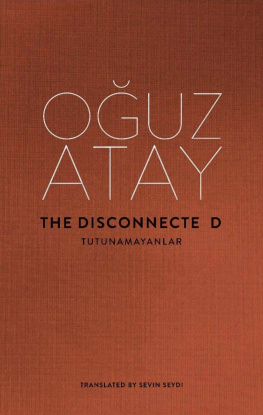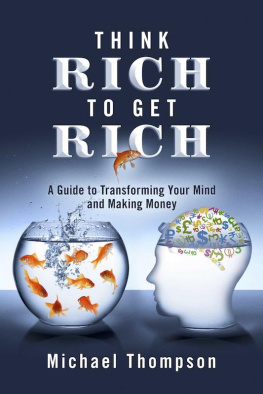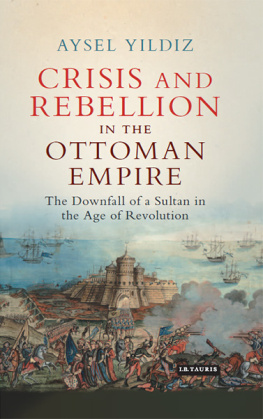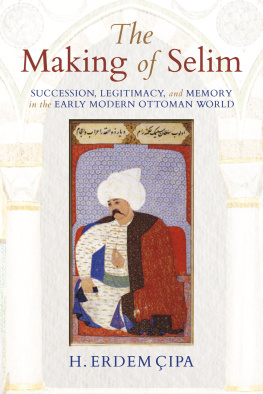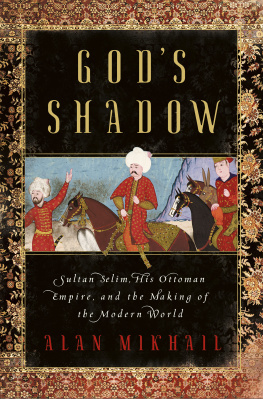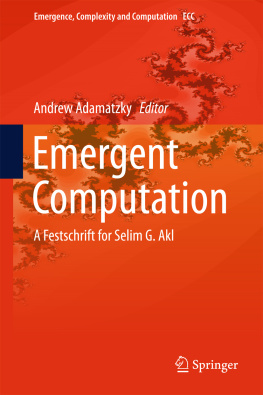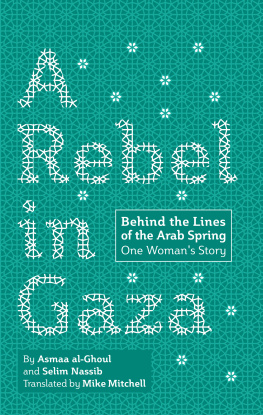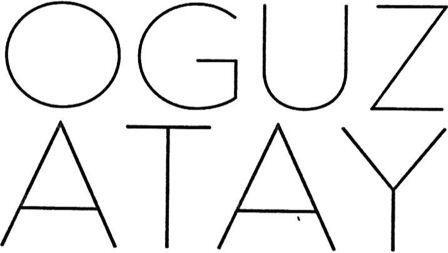THE DISCONNECTE D
TUTUNAMAYAN LAR
TRANSLATED BY SEVIN SEYDI
OLRIC
2017
INTRODUCTION TO THE ENGLISH EDITION
Oguz Atays The Disconnected , now widely reckoned to be not only the first but the most important modern novel in Turkish, had a slow start. Though given a prize before publication by Turkish Radio-Television, it was published only by a small firm which could not afford to print it all at once, so it came out in two volumes, 1971, 1972. To the literary establishment, used to novels of village life, this modernist urban novel was too weird. To his left-wing friends (he had written for their journals) it did nothing to advance the cause. It had some currency as a cult book among younger writers (Orhan Pamuk, for instance, who was 20 when it was published, has recorded that he read it twice in that year), but it went out of print and was forgotten. Ayfer Tung, who later described it as being in the DNA of all subsequent Turkish writers, relates how in 1981 she was given a battered copy of this book she had never heard of. Oguz went on to write another novel, a biography of a mathematician, a collection of short stories and a play which was put on at the Turkish State Theatre. He died of a brain tumor in 1977, aged just 43, never having seen a second printing of any of his books.
Then something remarkable happened. Taken over in 1984 by a new publisher, it was an instant success, reprinted several times in the first year and more than 70 times since. Somehow readers had discovered that the book was not as unapproachable as its great bulk suggested, that it could be hugely funny, very moving, or both at once, and that it had something important to say. It soon became popular with the academic industry: but this is not an instance of a book where critical acclaim leads to a large sale, with the book itself languishing unread. The blogosphere shows widespread delight in his language games, and a true feeling for Selim, the shy, uncompromising, bookish, hypochondriac antihero with his wide-ranging fantasy and his impossible demands on friendship, a universal figure like a Hamlet or a Don Quixote. It is estimated that the book has been internalized by as many as a million Turkish readers.
Something should be said of the author. Oguz Atay spent his adult life first in Ankara then in Istanbul, but he was born, in 1934, at Inebolu, a small town in the middle of the Black Sea coast. Though I knew him only through his most Europeanized Istanbul friends, I was always conscious of this hinterland. His father was a judge, and an MP in Atatrks one-party parliament, his mother was a schoolteacher: he was a child of the Revolution, with no nostalgia for the Sultanate, which appears only in a bad dream(p.66). He studied engineering, in those days the subject of choice for boys clever at school. On graduating, he started a construction company with a friend. It failed, but for him as for other writers (like Balzac) the experience was not useless. The pair could legally have walked away from the failure, but they made sure that the workers and small sub-contractors did not suffer: this left Oguz with a debt for many years. For the rest of his life he was on the faculty of the Yildiz Technical University in Istanbul: in fact his first book, required to advance in the academic hierarchy, was a textbook of surveying. He married and had a daughter. He led a quiet life, always neatly dressed, with a moustache (in later life a full beard), always good company over raki and meze at a meyhane, full of paradox and anecdote. And he read. The great Russians he had read in Turkish translation at an early age, and Dostoevsky remained his most important writer (though he had a particular fondness for Goncharovs Oblomov ): educated Turks of his generation felt a kinship with pre-Revolutionary Russia, Europeanized but on the margins of Europe. Later he read mostly in English. Was there another Turk who had read the whole of
Dickens? I see no influence, except perhaps a license for exuberance of language. He read intelligently. When he first read The Portrait of a Lady he remarked that it looked as if Henry James, circling round the unfortunate Isabel, would tell us everything, but there were lacunae: after all, we cannot know everything perhaps a commonplace of Jamesian criticism, but surely acute for someone coming from a different tradition. One aspect of this complex book is a confrontation with European literature, the background to which is a feeling that Atatrks forced Westernization of Turkey had led to a quasi-colonialism, where Turkey received the detritus of Western culture. I remember an interlude in a friendly discussion where he banged his fist on the table and quoted Kipling: East is East and West is West, and never the twain shall meet. He discovered the phrase Bon pour 1Orient, at one time stamped by French universities on diplomas which would not be valid in France, and liked to apply it widely. So along with a genuine love for European literature is a feeling of exclusion. Selim remembers some lines of Rilke, the acme of high European culture, and reflects: -
At no period of his life did Rainer Maria Rilke spend all night drinking with a man who sold slippers on the street, one who was no intellectual, and a stranger to him at that; nor did he, on his way back, have a completely sincere, heart-to-heart conversation standing on the platform of a tramway with a staff-sergeant. He also did not, five years later, regret this incident with the very same sincerity. He did not live with the pain of not knowing whom he had deceived, himself or the seller of slippers. How' much more profound, in fact, is the romanticism of the Germans than that of the Turks! (p.645).
He knew he wanted to write, and in 1968, after the end of his first marriage, this book, which must have been brewing for a long time came out, remarkably quickly, in the evenings after a full-time job, straight on to the typewriter. What sort of book is it? The late Eric Korn, who read an earlier draft of this translation and made some useful comments, tried: Between At Swim-Two-Birds and Ginsbergs Howl?, neither of which Oguz had read: a nice boutade but as inappropriate as the journalistic label The Turkish Ulysses prompted by its great variety of styles. The book is unique. It adds to the understanding, as well as the pleasure of reading, to see the great part played in it by games. Oguz once pressed into my hand a popular little book by Eric Berne, Games People Play [Now look what youve made me do], assuring me that it was more profound than most serious books on psychology. His commendation was tongue in cheek: he would have been astonished to learn how seriously the book is taken in some quarters as the foundation of transactional analysis. In The Disconnected the characters play games (the two main characters first meet over an absurd game), but so does the author. It can be ambiguous, a creative ambiguity, whether a character is playing a game, or the author is playing a game with the reader. What may seem in outline a bleak picture of alienation is given life and colour by the power of the imagination.
The story line is simple enough. Turgut Ozben, leading a middleclass life as a civil engineer, learns of the suicide of a University friend, Selim Isik, from whom he had drifted apart after his marriage. He determines to find the story behind this death, and goes on a quest for those who had known Selim. He learns many aspects of Selim, and reads a variety of documents. What he learns makes him see the faultline in his own life; he takes a train into Anatolia and vanishes.
What he learns, the leading theme of the book, is in the title: Tutunamayanlar, literally those who cannot hold on, suggesting those who fail or are rejected. Let us imagine that we could bring out into the sunlight (a sun far different from that which we know now) some truths and events that have long been buried, and see in this new light the indifference with which some groups of people, large or small, have always been treated. Let us rescue from the dusty shelves of history experiences of which the injustice has been obscured, lives pushed deep into the archives by misclassification, misinterpretation (p.121). These are the oppressed, whose time must come. Selim will be their messiah, at whose second coming they will change places with their oppressors. References to Jesus run through the book (along with Hamlet: both set impossible tasks by ghostly fathers), so we might think of the beatitude, that the meek shall inherit the earth. Or of Platos Republic , where the just man believed to be unjust is reviled and persecuted, even after death because he does not have the means to appease the gods: Socrates proves, by an argument which would have delighted Selim, that he is exactly 729 times as happy as the unjust man with a false reputation for justice. But Selim goes further than Jesus or Socrates. The book ends with a quixotic attempt at a comprehensive Encyclopedia of the Disconnected, which chronicles sad, broken lives. The Disconnected are neither meek nor just: their sole virtue (and his quest for Selim convinces Turgut that it is a virtue) is negative, that they do not fit into society.

